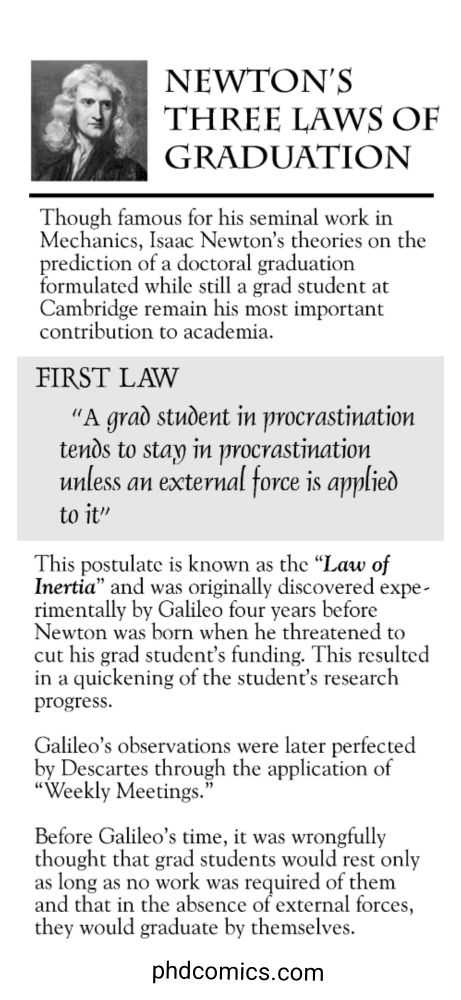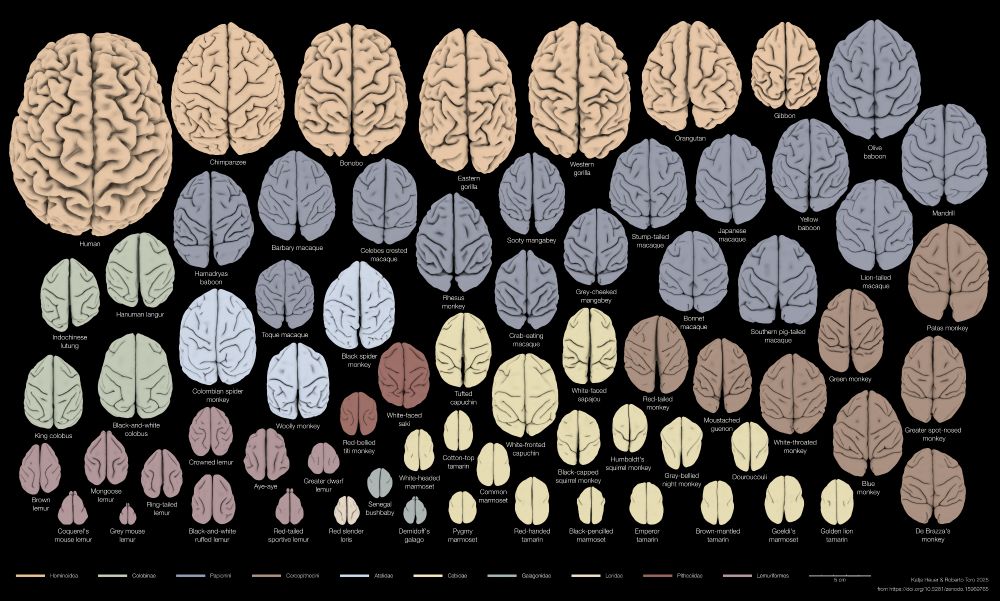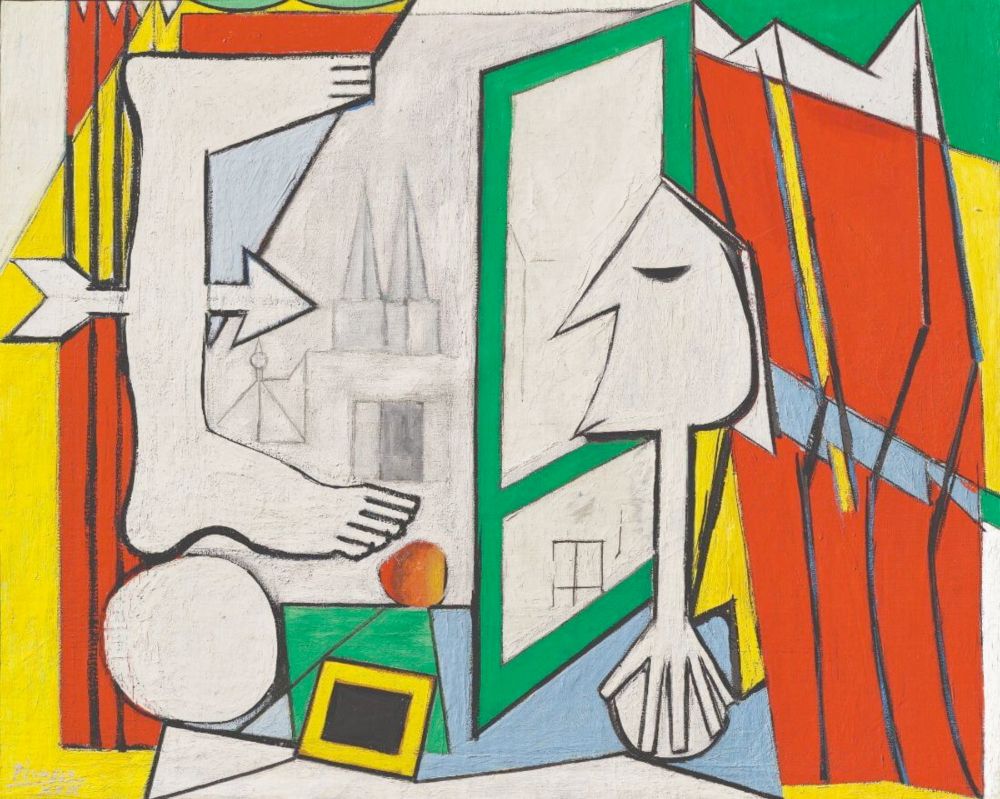
We had the pleasure of welcoming Dr. Lorenz Assländer (Uni Konstanz) to our #DHPRlab meeting.
He spoke about the cybernetics of human balance -how the nervous system integrates sensory cues to maintain stability- and about Augmented Visual Orientation Cues technology.
Thank you, @cybal.bsky.social🙏
17.02.2026 16:06 —
👍 3
🔁 2
💬 0
📌 0

Wir gratulieren! Lorenz Assländer @cybal.bsky.social und Matthias Albrecht von der #UniKonstanz erhalten den Dr. K. H. Eberle Preis 2025 für eine innovative Augmented-Reality-Brille, die das Gleichgewicht älterer Menschen und neurologischer PatientInnen verbessern soll. Details: t1p.de/jcafk
17.12.2025 13:19 —
👍 9
🔁 1
💬 0
📌 0

Two posts from Bluesky. The first one shows a figure from a paper published in Nature Scientific Reports full of totally incoherent AI fabricated gibberish words. The other a comment on a recently published paper by eLife discussing the paper and its peer reviews which were published along with the paper.
Nature Sci Rep publishes incoherent AI slop. eLife publishes a paper which the reviewers didn't agree with, making all the comments and responses public with thoughtful commentary. One of these journals got delisted by Web of Science for quality concerns from not doing peer review. Guess which one?
27.11.2025 13:35 —
👍 156
🔁 69
💬 4
📌 8

In 1916 the BMJ published an article about the work done by James Shearer, an American physician working in the British Army as a sergeant (because he had no British qualification). He had described a
"delineator" which was better than x rays for portraying gunshot wounds. This caused a sensation and a lot of interest — but on investigation the work was found to have been invented. The BMJ published a retraction, but Shearer was tried by court martial and sentenced to death by firing squad.
Next time an institution tells you how seriously it takes research misconduct, ask them if it's *this* seriously. www.bmj.com/content/297/...
13.10.2025 20:12 —
👍 642
🔁 233
💬 17
📌 21
Jane Goodall offers sage advice for the rest of us. #3E
06.10.2025 00:39 —
👍 3513
🔁 1235
💬 61
📌 119
Fully agree! Visual, vestibular and also proprioceptive sensory systems all have prominent velocity signals.
26.08.2025 15:54 —
👍 1
🔁 0
💬 0
📌 0
🧠📈 #neuroskyence
25.08.2025 17:08 —
👍 3
🔁 0
💬 1
📌 0
Our data is from sway behavior during standing balance. We believe the mechanism is generally relevant for the internal reconstruction of body orientation and #selfmotion for #motorcontrol, #perception, and #navigation.
25.08.2025 17:04 —
👍 2
🔁 0
💬 1
📌 0

In a linear system, visual scene motion evokes body sway at just those frequencies contained in the scene motion. We predicted a distortion using simulations, where body sway is evoked at frequencies NOT contained in the scene motion. This non-intuitive prediction was confirmed in experiments.
25.08.2025 17:04 —
👍 2
🔁 0
💬 1
📌 0
This reflects a reduced reliance on vision, quantitatively reproduced by the RFM mechanism.
Furthermore, the RFM model - once tuned - also predicts sway in new sequences (Prediction).
25.08.2025 17:04 —
👍 2
🔁 0
💬 1
📌 0

A typical behavior is that subjects sway increases less than proportional when increasing the movement amplitude of the visual reference: the 'gain' (amplitude ratio between body sway and stimulus) is reduced with increasing stimulus amplitude (Model fit left-to-right).
25.08.2025 17:04 —
👍 2
🔁 0
💬 1
📌 0

We implemented this mechanism in a closed-loop balance control model and compared its behavior with the sway responses of 24 subjects viewing a moving visual screen in a virtual reality head-mounted display.
25.08.2025 17:04 —
👍 2
🔁 0
💬 1
📌 0

The magic comes in, when assuming that the RFM reconstruction is blocked at small velocities and corrects (= is added to) the visual self-motion signal when exceeding a certain velocity threshold.
Why magic? It explains human behavior related to context dependent changes in sensory contributions.
25.08.2025 17:04 —
👍 4
🔁 0
💬 1
📌 0

In our new paper, we present evidence that the CNS continuously estimates the movement of the visual reference by comparing visual to other sensory cues. This reconstruction of Reference Frame Motion (RFM) happens in velocity. Why?
25.08.2025 17:04 —
👍 6
🔁 0
💬 2
📌 0
The underlying question is a fundamental problem in neuroscience: how does the nervous system construct body orientation from multiple, potentially conflicting sensory inputs?
We might have a solution.
25.08.2025 17:04 —
👍 4
🔁 0
💬 1
📌 0

Is it me, or the train moving?
We use vision to maintain balance. Just close your eyes while standing on one leg and you typically feel less stable. But if we use vision, how come we do not fall when looking at a moving visual reference, e.g. a train?
📈🧠🧪
#sensorimotor #balance #BiomechSky
25.08.2025 17:04 —
👍 23
🔁 6
💬 3
📌 0
A new blog, written together with @academic-integrity.bsky.social
05.08.2025 10:24 —
👍 5
🔁 4
💬 0
📌 0

Newton's Laws of Graduation, Part 1
02.08.2025 23:36 —
👍 139
🔁 27
💬 2
📌 8

Brain Surfaces of 70 primate species
1
To predict the behaviour of a primate, would you rather base your guess on a closely related species or one with a similar brain shape? We looked at brains & behaviours of 70 species, you’ll be surprised!
🧵Thread on our new preprint with @r3rt0.bsky.social , doi.org/10.1101/2025...
27.07.2025 17:26 —
👍 512
🔁 233
💬 16
📌 26
Joint PhD: Prevent Falls with Augmented Reality (FallAR) at Maastricht & Hasselt University
Joint PhD: Prevent Falls with Augmented Reality (FallAR) at Maastricht & Hasselt University
New job vacancy!
Joint PhD: Prevent Falls with Augmented Reality (FallAR) at Maastricht & Hasselt Universities
vacancies.maastrichtuniversity.nl/job/Maastric...
with me, @melvynroerdink.bsky.social Pieter Meyns & @kennethmeijer.bsky.social
@ispgr.bsky.social @worldfallssociety.bsky.social
24.07.2025 13:00 —
👍 10
🔁 12
💬 0
📌 2
Looking for a PhD-student position? Eager to work with advanced rehabtech and scalable augmented-reality solutions for fall-risk assessment and treatment? Learn from a team of scientists, Strolll entrepreneurs & developers and clinicians? Love interacting with older adults in NL & BE? Please apply!
25.07.2025 06:32 —
👍 5
🔁 2
💬 0
📌 0
📢 New Publication 📢
Effort differentially shapes behavior before, during & after an action. w/ @bcheval.bsky.social, Silvio & Florent, we explore stage-specific effects of physical effort & how these dynamically modulate each other.
Now out in Trends in Cognitive Sciences 🤩🤩
Curious? ⬇️
03.06.2025 14:05 —
👍 18
🔁 11
💬 0
📌 1
I wrote an article earlier in the week arguing that we need to give junior researchers more independence earlier, and this should be our focus, not moonshot mega projects led by senior researchers.
I was surprised how much agreement I'm seeing.
So next question: how do we do this?
29.05.2025 18:59 —
👍 102
🔁 25
💬 5
📌 2
Jep, I fully agree. We did that in the last round and he/she was not happy.
Problem is: I see the confirmation of a true and strong a priori prediction as very good evidence and he/she wants us to exclude all alternative explanations, which is simply impossible. Pretty fundamental disagreement 🤷♂️
13.05.2025 18:43 —
👍 0
🔁 0
💬 0
📌 0
















